7 General Hunting Laws You Should Know
As a prepper, it’s important to be aware of the hunting laws in your state. Doing so can help you avoid getting into trouble with the law, and ensure that you’re operating within the bounds of the law when hunting.
In this post, we’ll discuss some general hunting laws that you should know about. Keep in mind that these are just general guidelines – always check with your state’s specific regulations to make sure you’re up to date on the rules.
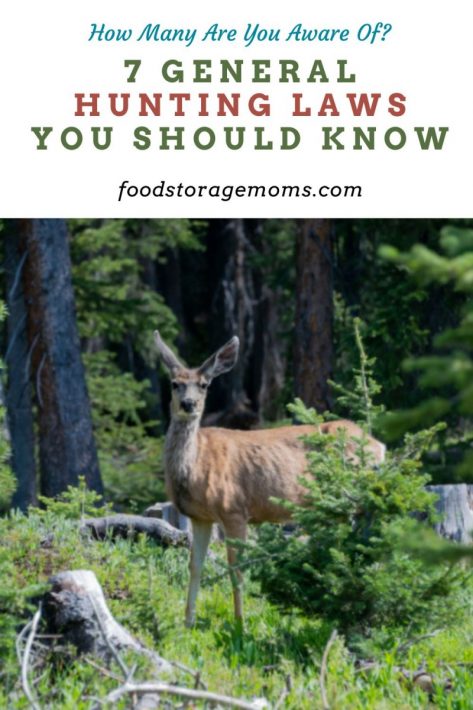
Why Are There Hunting Laws?
Hunting laws are designed to protect hunters, their companions, property owners, and the animals they hunt. These laws typically regulate hunting seasons, hunting areas, and the type of hunting equipment that can be used. By doing so, hunting laws help to ensure that hunting is carried out in a safe and responsible manner.
Additionally, hunting laws can help to prevent overhunting, which can damage ecosystems and lead to the decline of certain species. In short, hunting laws are important for both hunters and the wildlife they hunt. By following these laws, hunters can help to ensure a sustainable future for both themselves and the animals they love.
Why Should You Hunt As a Prepper?
Hunting is an important survival skill for preppers. Not only can hunting provide you with much-needed food in an emergency scenario, but it can also help you to become more self-reliant. Hunting can also be a great way to bond with nature and get some exercise in the process. It’s also a great way for families to spend some quality time together, and while doing so teach our kids some basic safety procedures with weapons.
There is also the aspect of keeping the various animal types populated at levels that are sustainable. Overpopulation can cause havoc as animals can overgraze, deplete other animal species, both wild and domestic, and find it difficult to survive with limited space and food, etc.
Of course, hunting isn’t for everyone. Some people simply don’t enjoy hunting, and that’s okay. It also requires a fair amount of walking and hiking, often in some steep terrain. You may want to check with your doctor to make sure they feel you’re up to the possible strenuous exercise. If you do enjoy getting outdoors and understand how to operate your weapon, then it’s definitely something you should consider as a prepper.
7 General Hunting Laws You Should Know
Each state has different hunting laws based on a number of factors. It’s important to be aware of the regulations in your state before you go out hunting. Although each state has there own laws regarding hunting and fishing, there are some general hunting laws that most states adhere to.
You Must Purchase a Hunting License
In order to hunt, you must first purchase a hunting license. The cost of a hunting license varies from state to state, but is typically $20 or more. You can usually purchase a hunting license at your local sporting goods or fishing store, or online through the state’s fish and wildlife website.
Most states will offer what is often called a “combination license.” This can be a cost-effective approach to consider if you hunt more than one animal species, if you also hunt birds, and it may also include the fishing license too. Usually, a combination of any kind will prove to cost less than buying each type of license individually.
Note that you can cross state lines and hunt in another state, but you’ll need an out-of-state license. They will be more expensive and often are only offered for short-term periods, like one day, a week, etc. The challenge is staying up to date on that state’s rules and regulations. It may be worth considering hiring a guide who can take you to the hot hunting spots, but also work with you to stay in line legally.
You Can Only Hunt During Hunting Season
Hunting season is the time of year when hunting is allowed. Each state has different hunting seasons for different animals. For example, deer hunting season typically takes place in the fall, while turkey hunting season usually occurs in the spring. Knowing what, when, and where is all part of the research you need to do before you get out in the wild.
Most states have the regulations published online for all to read and understand. Using the excuse that you didn’t know really doesn’t cut it, and could be very costly in fines, penalties, and possible bans from hunting going forward, particularly if it’s felt you were actually poaching.
You Must Follow the Bag Limits
The bag limit is the number of animals that a hunter is allowed to kill in a hunting season. Bag limits help to prevent overhunting, and ensure that the population of a certain species remains stable. Each state has different bag limits for different animals. The bag limits could actually cover a period as short as one day. For example, you may be able to shoot and take home five ducks, but only two pheasants, and one goose on that one-day hunt.
There may also be specific limits within a species. For many years here in Utah you couldn’t shoot pintail ducks, but you could kill multiple teals.
You Must Check the Firearm Regulations
Firearm regulations vary from state to state too. In some states, only certain types of weapons are allowed for hunting. For example, most states don’t allow automatic rifles with large magazines. They want you to only use shotguns for fowl, and there may be certain times that muzzleloaders are to be used for deer hunting. It’s important to check the firearm regulations in your state before hunting.
Those regulations will also dictate if there are age restrictions. Mark told me his first hunting license was one to be used to hunt game birds and he got it at age 14. He had to take some hunter safety courses, hunt with an adult, etc. He used a bolt action 20-gage shotgun, and he liked it since it didn’t kick like the 12-gage his friends had. Of course, it didn’t have the range the larger weapon had, but he learned to drop the birds pretty well as he gained experience.
You Must Wear Fluorescent Orange When Deer Hunting
In many states, hunters are required to wear fluorescent orange vests while hunting. This law is designed to make hunters more visible to other people, and help to prevent hunting accidents. There is a balance when it comes to standing out so you don’t get hit by other hunters who may think you are their prey, and trying to stay hidden from the birds and animals you are trying to hunt.
You Must Respect Private Property
Hunters must respect private property rights. This means that you can only hunt on private land that you have permission to hunt on. Most public lands are available for hunters to use, unless posted otherwise or are outlined in the regulations published.
Remember, you can’t hunt where “no trespassing” signs are posted. Before you enter someone’s property, signs or not, get their permission first.
If you’re hunting on public land, be sure to check the regulations regarding hunting. Some public lands, such as national parks, don’t allow hunting.
You Must Follow the Rules of Safe Hunting
Safe hunting is important for both hunters and non-hunters alike. When hunting, always be sure to follow the rules of safe hunting. These rules include being aware of your surroundings, using proper safety equipment, knowing how to properly handle your weapon, transporting your weapon unloaded, always walking with the safety on, learning how to properly cross a fence, and more.
What Animals Can You Legally Hunt?
In the United States, you can legally hunt a wide variety of animals. Some of the most popular animals to hunt include deer, elk, moose, bear, turkey, and waterfowl.
Before hunting any animal, be sure to check the hunting regulations in your state. Each state has different hunting laws, and some states have different hunting seasons for different animals.
What Animals Are Against the Law to Hunt?
It is against the law to hunt certain animals in the United States. These animals are protected by state or federal law, and it is illegal to hunt them. Some of the animals that are against the law to hunt include bald eagles, alligators, and red wolves.
If you’re unsure whether or not you can legally hunt a certain animal, be sure to check with your state’s fish and wildlife department.
Can I Hunt On My Own Property?
Yes, you can hunt on your own property. However, there may be some restrictions. For example, some states have laws that prohibit hunting within a certain distance of a dwelling or within the city limits. Additionally, in some states, you don’t have to obtain a hunting license if you own a certain acreage of land.
Before hunting on your own property, be sure to check the hunting regulations in your state.
Can I Hunt With a Bow and Arrow?
Yes, you can hunt with a bow and arrow in most states. However, there may be some restrictions. For example, some states only allow hunting with a bow and arrow during certain times within the hunting seasons. We haven’t checked lately, but here in Utah the bow season was before the regular deer hunt.
Before hunting with a bow and arrow, be sure to check the hunting regulations in your state.
Hunting Laws By State
Each state has a different set of laws when it comes to hunting. For example, in Alabama, hunters under 16 don’t need a license. And, in Delaware, you don’t need a license if you own 20 or more acres of land. If you are looking for laws in your specific state, you can find Hunting Laws at a Glance by State, here.
What Are The 4 C’s Of Hunting?
The 4 C’s of hunting are compliance, conservation, cooperation, and courtesy:
- Compliance: Compliance means following all hunting laws and regulations.
- Conservation: Conservation means practicing hunting in a way that conserves wildlife populations.
- Cooperation: Cooperation means working with other hunters to ensure a safe and successful hunt.
- Courtesy: And, courtesy means being respectful of other hunters and non-hunters alike.
Final Word
By following these hunting laws, you can help to ensure a safe and responsible hunting season. Remember, always check with your state’s specific regulations to make sure you’re up to date on the rules. Have a safe and successful hunting season! May God Bless this world, Linda
Copyright Images: Mule Deer Doe AdobeStock_362711495 by gevans

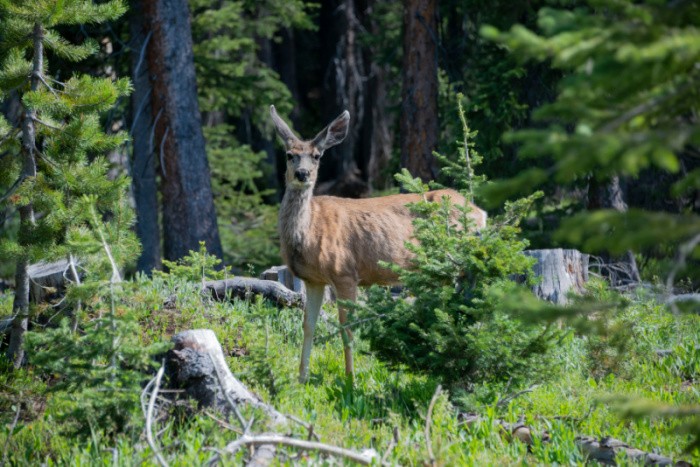

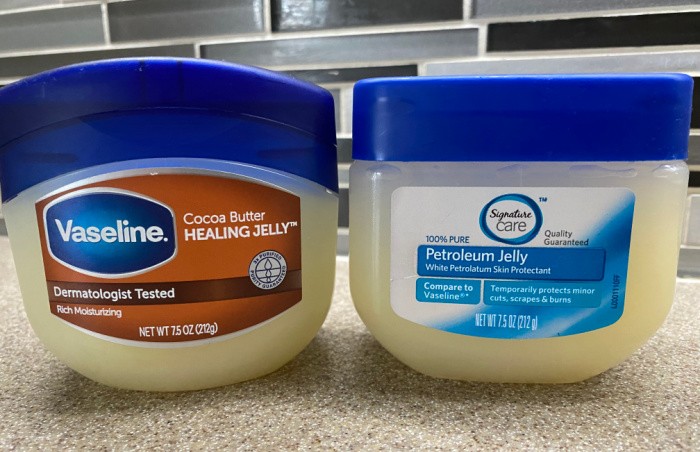

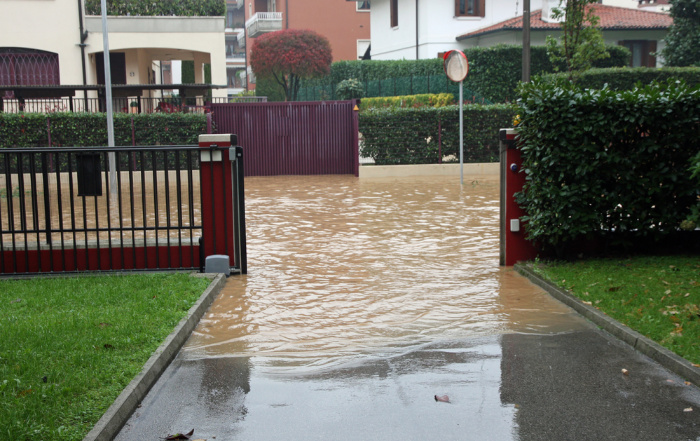
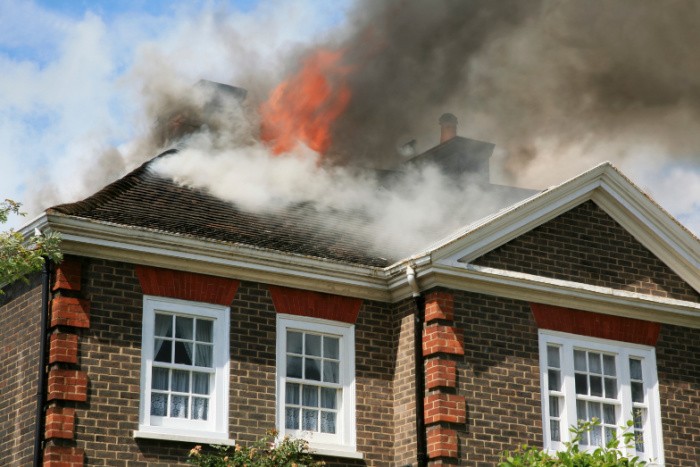
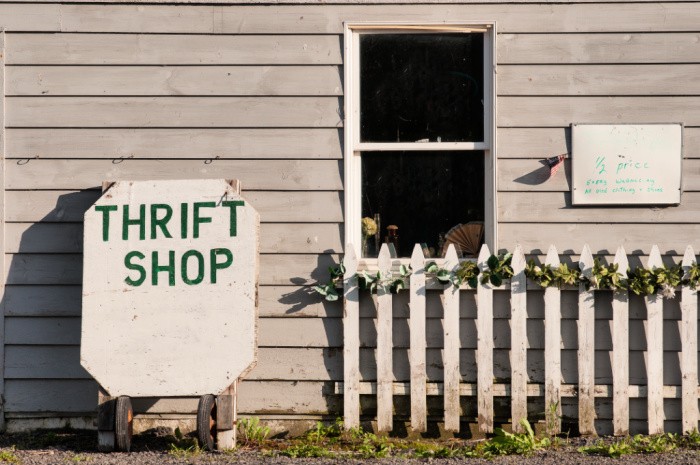














I’m an avid hunter and have been since I was 7. I was 14 before I knew there were actually laws. I grew up in SE Oklahoma and we ate what we killed and took a deer whenever we ran low and we’re told to.
The laws are meant to conserve game and make it safer. Large game like deer and elk were wiped out in the dust bowl days in Oklahoma and it took generations to recover.
Real Hunting is not to be taken lightly. I hunt a place where no vehicles can be used, no feeders, no bait etc. you hike in you carry it out. So no sitting in a heated blind you drove to waiting on the 9:30 timer to go off to spill the corn while you watch tv “hunting”.
If your not mentally prepared it’ll prove a task for you. Hunting laws do not make it easier to accomplish in fact the opposite.
I recommend obeying the laws but I also recommend that if you believe in the possibility of having to actually do it to survive for any reason then you know what to do in that case.
Wether you hunt or not enjoy the beauty of nature and look at that beautiful mulie doe in her red summer coat surrounded by the deep colors and breathe the air and enjoy those who might be in your company
Hi Matt, oh I LOVE LOVE LOVE this comment. My husband brought home a deer years ago he hauled off the hill or up a hill I don’t know. We hung it in the garage for a few days or whatever, it’s been too many years. We dragged it into the kitchen and placed it on the kitchen table. That was the first and last deer I ever participated in cleaning. Utah is big into hunting game and feeding their families. I wish I liked the taste, I know if I was hungry I would eat it. I totally agree with the beauty of the mountains and the air you breathe with family and friends! Life is good! Linda
Hang it a few days to break down the amino acids then bone the meat off it and soak it out in cold water, in an ice chest, for a full 24-36hrs so it’s not gamey. Change the water out a time or two. The meat will almost be a white in color. Many places critters diet like sage brush can make it strong.
Doing this is night and day difference in taste and quality.
Try mixing it 50/50 with ground beef or sausage to help you overcome too.
Hi Matt, I’m so glad you mentioned this technique. My nephew told me the same thing about the ice chest. We did not do that. THANK YOU! Linda
Matt is correct as always. When I was a kid in Kansas the white tail deer we hunted tasted great, but then they were basically corn fed. And even then we hung the deer for a few days in a garage before dressing it out. When I moved to Colorado the mule deer tasted awful because of the sage brush and bitter scrub oak acorns they were feeding on. While I could have done as Matt suggested to get rid of the gamey taste, I just switched to hunting Elk and to this day that is the best meat I’ve ever eaten.
One of the main advantages to following our hunting conservation laws is by keeping the population of game animals under control we are also limiting the numbers of their natural predators. I see people posting photos of cute deer in their backyards without realizing they are inviting mountain lions into those yards as well. Predators follow prey, but folks are so divorced from the realities of nature they no longer seem to grasp that–until their pets start disappearing.
Hi Ray, great comment! I have had elk, it really is good. It’s not gamey and has very little fat. I could be wrong but I think you have to draw for elk in Utah. Great stories today!! LOVE it, Linda
Ray, we have deer all over where we live. And yes, they do go into peoples yards. That being said, in East Texas where I live, it’s illegal to photograph or video deer. Weird, but a true law. We watch them every day. We are covered in them. We don’t hunt though. My BIL does every year. But his wife can’t eat red meat. LOL
Deborah, you guys have feral hogs that get huge in East Texas too. Wouldn’t want to run into one of them while hunting deer.
But my warning remains. If you have deer you will get the animals the feed on deer eventually. Predators follow prey.
Yes. Like my MIL who hung up a bird feeder to watch the birds. She also enjoyed watching the squirrels eat the bird seed. Then a hawk turned up to eat at the bird feeder. She took it down after he ate a couple song birds and a squirrel or two. The hawk wasn’t too phased by this, he just moved down the road to another backyard bird feeder.
The hunting limits are based on the current population of the animals in the general area. If the deer herds are too big, then they will increase the number of animals you can harvest and include both does and bucks. In a low population area or an animal with low populations, you may only be able to hunt for the males. Or you may only be allowed to hunt with bow and arrow or black powder rifles only, both of which tend to result in less deer being killed then when hunting with rifles.
Hi Topaz, wow, that bird feeder story is so interesting and scary at the same time. Thanks for sharing your comment, I love it! Linda
Hi Deborah, oh my gosh, it’s illegal to photograph or video the deer??? WOW, that is so interesting. I wonder about certain laws like this but I’m not in charge so…..Linda
Ray, I’m glad you brought up the subject of predators. In my area, it brought to mind how happily excited people are to see bears in their backyards, grouch a little about the bears tipping over garbage cans and robbing their bird feeders…Then, take pictures, continue to add feed to their birdfeeders…which they often hang in the treed areas quite close to their homes! Jay-sus! A bear is not typically a predator but I’d prefer Not to interview one to find out their thoughts on being an omnivore!
Matt, when you hang your deer do you cover it with mosquito netting to keep the flies off? I always did.
My mother soaked her venison in milk to get the wild taste out. I grew up eating it and it was always good. Mothers sister always said she couldn’t stand to eat it. But mother made a venison roast one Thanksgiving and the aunt loved it. She never knew she ate venison. LOL Some people are just weird!
Hi Deborah, that is the best story ever! She didn’t even know she was eating venison. When I dated my husband we ate venison sandwiches all the time. I had forgotten that until just now! Oh, the memories we have. LOL! Linda
My son’s new property has so many deer, he could take one out with a bow and arrow from the bedroom window. ( which I’m not sure if that is fair to the deer.) I don’t know if he plans to get one this year. Now that he has a freezer, he might. I know one of his neighbors processes dear meat. I doubt that is something my daughter in law would attempt
HI Chris, let’s hope the deer stick around for years on their property. Yeah, the deer meat processor sounds awesome! LOL! Linda
In our state if a deer is gettin’ in your food garden it can be harvested must call game warden first… or immediately after.. alerting there is an issue….they will give deer stamp/permission.. Deer and elk etc carry and transmit CWD. it is in our area so no hunting for us.. just not worth the risk .I don’t want to have brain wasting disease and know what is happening and no treatment.
Hi Denise, good to know. I have heard about CWD, Chronic Wasting Disease in animals like deer, moose, and elk. It’s hard to keep track of all the wide game diseases let alone the human ones. Linda
This prion disease remains active in soil where a deer has slobbered, urinated etc for over 100 years. friend in Veternary realm says to bury any such animal and all contaminated soil a minimum of 6 feet. It can not migrate in soil is only a fragment but CAN cause same disease in everything that walks the earth and consumes the meat of a contaminated animal. I have not seen this but other ppl whom i trust have seen this disease in CLOSE family members- what an AWFUL way to die.
Hi Denise, that’s interesting. I thought I read that the CDC said they had never heard of a human contracting it. I have no expertise in that area. But it sure makes you wonder. Linda
CDC=corrupt organization: is foreign owned. They own patents on 20 vaccines. So who profits when they recommend vax’s?
I don’t currently hunt, other than varmints like woodchucks or porcupines (although I was the first girl in the area to take hunter safety–and to the disgust of some of the boys, bested them in the target night!) But sure would if the need arose. And like Queen Elizabeth, I enjoy tracking (did you know that she was considered an excellent deer-stalker?)
From the perspective of a land-owner–if you want hunting privileges, please be respectful. I’ve had to limit who hunts my land, on an individual basis. What eventually forced us to do so was lack of consideration: things like blocking field gateways when parking, breaking down fences, leaving gates open/unlatched (and even entering livestock-occupied pastures), leaving trash (even beer bottles, imagine!) The few who now hunt here are wonderful about caring for the property, letting me know of any problems–and if they do get something, they often later give me a package or two of venison! (One even saved me a leg bone–used to rub the scratches out of one’s leather riding boots.)
Then there was the friend whose teenage daughter bagged her first black bear–a good deal more meat then the family felt they could handle–so they shared it! *Very* good, although it took a while to find a recipe or directions!
Hi Rhonda, what a blessing to have land to share with others to hunt. Shame on those disrespectful hunters. Who leaves trash behind?? Good grief, who is going to pick it up? Or leaves latches unlocked? Or enters the family livestock area?? I just shake my head sometimes. I did not know Queen Elizabeth was a deer stalker, I love it! Linda
Hi Rhonda, courtesy and respect for landowners And nearby homes is so important. I too allow hunting on my property but only to those I ‘vet’ ahead of time. Some landowners around me do the same but many just say No. We’ve all had bad experiences with disrespectful hunters.
I grew up on a small, personal ranch in California and have always hunted since I was a girl. I would frequently run out in the fields ahead of my dad to flush the pheasants for him to shoot. Good times. As I grew up, I still went hunting and fishing and can kill, gut, clean and package a deer, although I no longer want to. I never did get into bird hunting (quail, chukar, etc) cuz they were so small to hit! And no dog to fetch ’em. I went to work for the Department of Wildlife for many years and became a Hunter Safety Instructor. That tickles the grandkids to no end. They still can’t believe grandma can shoot! As far as knowing laws, I had one particular male caller (no offense, gentlemen!) who wanted to hunt coyotes. Coyotes are open season, you see ’em, you can shoot ’em. HOWEVER! You still have to obey all the other rules, i.e., no shooting in residential areas (they’re all over here), not within distances of buildings, and the thing that got this guy the most was no shooting at night. He wanted to spotlight them, which is illegal due to being at night. You cannot discharge any firearm at night here. No matter how he asked, twisted the question, the answer was always the same. I finally just gave up and transferred him to my boss. He picked up the phone and said…” it’s like my secretary said” and the guy accepted the answer from HIM. Harumph! Just because I’m a woman, doesn’t mean I don’t know what I’m talking about. I still chuckle about that all these years later.
Hi Robbie, oh my gosh, this is the best story! Grandma was Hunter Safety Instructor! SQUEAL!! I love it!! Mark would bring doves home and I would say, I can’t find the meat….LOL! It’s so funny when we had a landline and someone would call and ask for the man of the house. What??? I would hand Mark the phone and he would hand it back to me because I KNEW the answer. It’s like you said, the guy wouldn’t;t believe you until your boss said, “it’s like my secretary said!” I get the giggles thinking back about questions like this. Life is good! Any new quilts lately? Linda
Ray, I’m glad you brought up the subject of predators. In my area, it brought to mind how happily excited people are to see bears in their backyards, grouch a little about the bears tipping over garbage cans and robbing their bird feeders…Then, take pictures, continue to add feed to their birdfeeders…which they often hang in the treed areas quite close to their homes! Jay-sus! A bear is not typically a predator but I’d prefer Not to interview one to find out their thoughts on being an omnivore! Ok